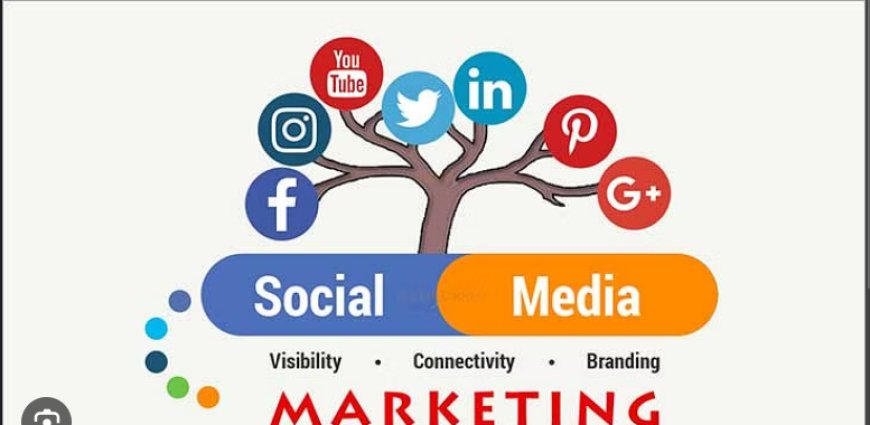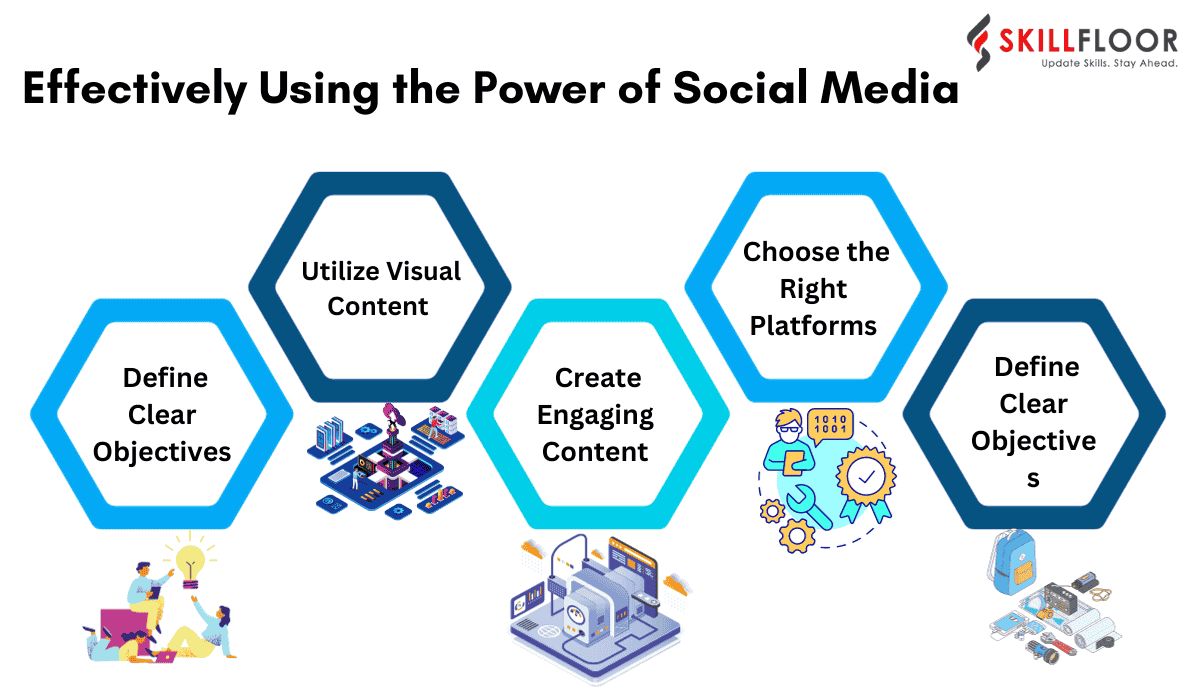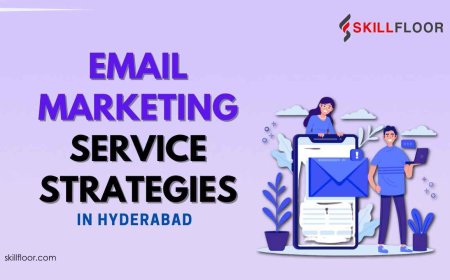Exploring the Power of Social Media in Digital Marketing Campaigns
Unlock the potential of social media in digital marketing campaigns. Learn strategies, trends, and tools for effective online brand promotion and audience engagement.

Social media stands out as a powerhouse, reshaping the way businesses engage with their audience. Platforms like Facebook, Instagram, and Twitter have revolutionized the marketing landscape, providing unparalleled opportunities for brand promotion and customer interaction. This exploration dives into the profound impact of social media on digital marketing campaigns, dissecting the strategies that utilize its broad reach and immediacy.
As businesses navigate the blurred lines between online and offline experiences, understanding the role of social media becomes paramount. From influencer partnerships to creating viral content, this journey unpacks the diverse ways in which social media enhances brand visibility and drives results.
Social media has become an integral part of digital marketing campaigns, offering a powerful platform for businesses to connect with their audience, build brand awareness, and drive conversions. However, despite its widespread use, there are common misconceptions and pitfalls that businesses may encounter in their social media marketing efforts. Here's an expansion on some of these challenges:
Challenges Faced by Marketers in Utilizing Social Media
Overemphasis on Vanity Metrics
Misconception: Some marketers focus too much on vanity metrics such as likes, shares, and followers, assuming that high numbers equate to success.
Pitfall: While these metrics provide a quick overview, they may not accurately reflect the impact on business goals. It's crucial to align social media metrics with broader marketing objectives, such as lead generation, sales, or customer engagement.
Ignoring Target Audience Research
Misconception: Assuming that everyone is a potential customer and neglecting detailed audience research.
Pitfall: Without understanding the target audience's demographics, interests, and behaviors, businesses may create content that doesn't resonate with their ideal customers. Tailoring content to a specific audience enhances engagement and conversion rates.
Overlooking Platform-Specific Strategies
Misconception: Employing a one-size-fits-all approach across all social media platforms.
Pitfall: Each platform has user demographics, features, and content preferences. Ignoring these differences can lead to ineffective strategies. Tailor content and engagement strategies to fit the unique characteristics of each platform.
Inconsistent Brand Voice and Messaging
Misconception: Treating social media as a standalone entity with a separate brand voice from other marketing channels.
Pitfall: Inconsistency in brand messaging can confuse and alienate the audience. Maintain a cohesive brand voice across all channels, ensuring a unified brand identity and reinforcing key messages.
Focusing Solely on Promotion
Misconception: Using social media primarily for promotional purposes.
Pitfall: Constantly bombarding followers with promotional content can lead to disengagement. A successful social media strategy involves a mix of promotional, educational, entertaining, and engaging content to keep the audience interested.
Ignoring Customer Feedback and Interaction
Misconception: Neglecting to monitor and respond to customer feedback and interactions.
Pitfall: Social media provides a direct line of communication between businesses and customers. Ignoring comments, questions, or concerns can harm the brand's reputation. Actively engage with the audience to build trust and demonstrate a commitment to customer satisfaction.
Underestimating the Time and Resources Required
Misconception: Believing that social media marketing is quick and easy.
Pitfall: Managing social media effectively requires consistent effort, time, and resources. From content creation to community management, businesses need to invest adequately to see meaningful results.
Not Adapting to Algorithm Changes
Misconception: Assuming that once a strategy is effective, it will remain so indefinitely.
Pitfall: Failure to adapt strategies to algorithm changes can result in decreased visibility. Stay informed about platform updates and adjust your approach accordingly.
What are some effective ways for businesses to utilize the power of social media?
Effectively Using the Power of Social Media
Here are a few strategies companies can use to properly utilize the power of social media:

Define Clear Objectives
Clearly outline your business goals and objectives for social media. Whether it's increasing brand awareness, driving website traffic, or boosting sales, having specific and measurable goals will guide your social media strategy.
Understand Your Audience
Identify and understand your target audience. Social media platforms offer diverse user demographics, and tailoring your content to resonate with your audience's interests and preferences is key to engagement.
Choose the Right Platforms
Not all social media platforms are created equal. Select platforms that align with your business and target audience. For example, visual businesses may find success on platforms like Instagram, while B2B companies might focus on LinkedIn.
Create Engaging Content
Develop high-quality and engaging content that adds value to your audience. This can include a mix of informative articles, entertaining visuals, videos, and user-generated content. Consistency in posting is also crucial for maintaining audience interest.
Utilize Visual Content
Visual content, such as images and videos, tends to perform well on social media. Platforms like Instagram, Pinterest, and TikTok thrive on visually appealing content. Invest in creating eye-catching visuals that convey your brand message effectively.
Interact and Build Relationships
Social media is a two-way street. Actively engage with your audience by responding to comments, messages, and mentions. Building a community around your brand fosters loyalty and enhances your online reputation.
Incorporate Influencer Marketing
Collaborate with influencers who align with your brand. Influencers can help amplify your message and reach a wider audience. Ensure that their values and audience match your business objectives.
Utilize Paid Advertising
Social media platforms offer powerful advertising tools. Invest in targeted paid advertising campaigns to reach specific demographics, increase visibility, and drive conversions. Analyze metrics to refine and optimize your ad strategy over time.
Monitor Analytics and Adjust Strategies
Regularly analyze social media analytics to understand what works and what doesn't. Monitor key performance indicators (KPIs) such as engagement rates, click-through rates, and conversion rates. Use insights to refine and adjust your social media strategy accordingly.
Stay Informed and Adapt
Stay informed about industry trends, platform updates, and changes in user behavior. Adapt your strategy to utilize new features and opportunities as they arise.
Encourage User-generated Content
Encourage your audience to create and share content related to your brand. User-generated content not only provides authentic endorsements but also helps in building a sense of community around your brand.
Provide Customer Support
Social media is increasingly becoming a customer service channel. Respond promptly to customer inquiries and address issues publicly to showcase your commitment to customer satisfaction.
Tips to create engaging content for social media
Here are some tips to help you create compelling and shareable content for social media:
Know Your Audience
Understand the demographics, interests, and preferences of your target audience. This knowledge will guide your content creation and help you tailor your messages to resonate with your followers.
Define Your Brand Voice
Develop a consistent brand voice that reflects your brand's personality and values. Whether it's humorous, informative, or inspirational, maintaining a consistent tone helps build brand identity and fosters a stronger connection with your audience.
Create Visually Appealing Content
Visual content performs well on social media. Use high-quality images, graphics, and videos to capture attention. Ensure that your visuals align with your brand and are optimized for each platform's specifications.
Craft Compelling Headlines and Captions
Capture attention with intriguing headlines and captions. Keep them concise, relevant, and engaging. Pose questions, use emojis, or share interesting facts to encourage interaction.
Utilize Hashtags Effectively
Research and use relevant hashtags to expand the reach of your content. However, avoid overloading your posts with hashtags. Focus on quality rather than quantity, and use popular and niche hashtags to connect with a broader audience.
Share User-Generated Content
Encourage your followers to create and share content related to your brand. User-generated content not only provides social proof but also fosters a sense of community. Acknowledge and showcase user-generated content to strengthen your relationship with your audience.
Optimize Posting Times
Understand the peak times when your target audience is most active on each platform. Schedule your posts during these optimal times to increase visibility and engagement.
Tell Stories
People connect with stories. Share behind-the-scenes glimpses, success stories, or customer testimonials to humanize your brand. Authentic storytelling helps build trust and emotional connections with your audience.
Run Contests and Giveaways
Contests and giveaways can generate excitement and engagement. Ask followers to participate by sharing, commenting, or tagging friends to enter. Ensure that the prizes are relevant to your audience and aligned with your brand.
Stay Current and Relevant
Keep up with current trends, news, and conversations within your industry. Incorporate relevant topics into your content to show that your brand is current and engaged with its audience.
Encourage Engagement
Prompt your followers to engage with your content by asking questions, conducting polls, or running surveys. Respond promptly to comments and messages to foster a sense of community and make your audience feel heard.
Monitor Analytics and Adjust Strategy
Regularly analyze the performance of your content using social media analytics. Identify what works well and what doesn't. Adjust your strategy based on insights to improve engagement continuously.
The impact of social media on digital marketing campaigns is undeniable. The ability to connect with audiences on a personal level, build brand awareness, and drive engagement has transformed the marketing landscape. As businesses continue to navigate this dynamic space, understanding the importance of authenticity, targeted strategies, and adaptability will be key to unlocking the full potential of social media in the digital marketing field.






























































